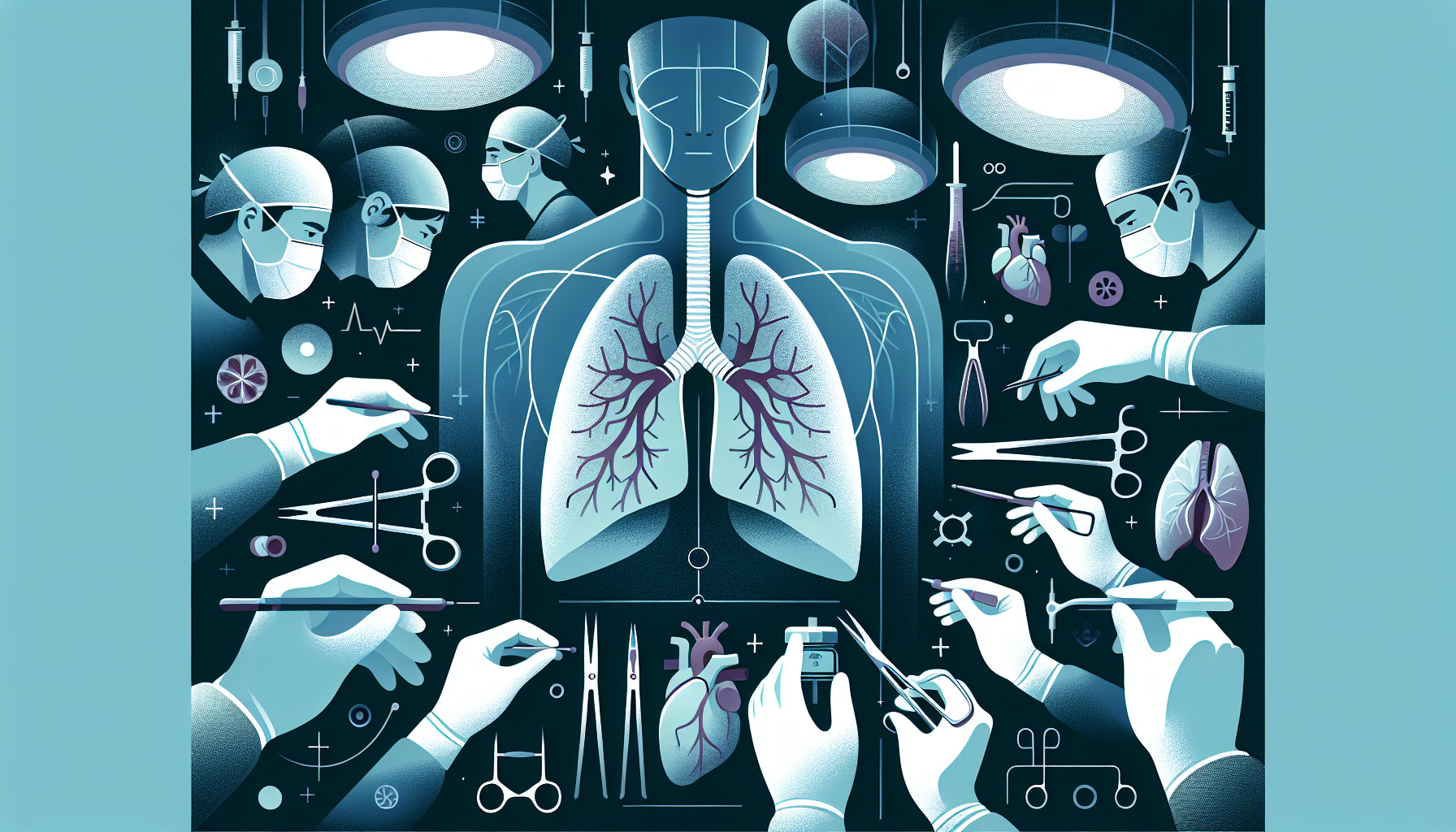Our Summary
This research paper is about improving the field of organ transplantation, specifically lung transplantation, by using precision medicine techniques to predict outcomes. The issue is, there isn’t agreement on what outcome should be used to measure success. The authors suggest that the time it takes for a patient to be taken off a ventilator (extubation) after their transplant is a good measurement. They argue this is a good option because it’s relevant to the patient’s health, it’s easy to measure, it stays consistent over time, and it’s tied to the cost of healthcare. They found that using a cut-off point of 72 hours, the time to extubation was linked to the severity of graft dysfunction (a complication after a lung transplant), the length of stay in the hospital and intensive care unit, and a more than two-fold increase in healthcare costs. Since all lung transplant centers can easily measure time-to-extubation, the researchers argue that it should be used as the main outcome to test predictions for lung transplants.
FAQs
- What is the proposed optimal end-point for prognostic tests in lung transplantation?
- Why is time-to-extubation considered a preferred primary end-point for prognostic tests developed for lung transplantation?
- How does time to extubation correlate with healthcare costs and patient outcomes following a lung transplant?
Doctor’s Tip
A doctor might tell a patient undergoing a lung transplant that time-to-extubation is an important measure of post-transplant success. This measure is objective, stable over time, and correlated with healthcare expenditure. Patients who have a shorter time-to-extubation may have better outcomes and lower healthcare costs. It is important for patients to work closely with their healthcare team to optimize their recovery and achieve a successful outcome after a lung transplant.
Suitable For
Patients who are typically recommended for lung transplant are those with end-stage lung disease who have exhausted all other treatment options and have a significantly decreased quality of life and life expectancy. Common conditions that may warrant a lung transplant include chronic obstructive pulmonary disease (COPD), idiopathic pulmonary fibrosis, cystic fibrosis, and pulmonary hypertension. Patients must also meet specific criteria for lung transplantation, such as having a good overall health status aside from their lung disease, being able to comply with post-transplant care and medications, and having a strong support system in place. Additionally, patients must undergo a thorough evaluation process to determine their eligibility for transplantation and to assess their potential risks and benefits of the procedure.
Timeline
Before lung transplant:
- Patient undergoes evaluation and testing to determine eligibility for transplant
- Patient is placed on the transplant waiting list
- Patient may experience worsening symptoms and decreased lung function while waiting for a donor
- Patient receives notification of a potential donor match
- Patient undergoes surgery to receive lung transplant
After lung transplant:
- Patient is monitored closely in the intensive care unit post-surgery
- Patient is weaned off mechanical ventilation
- Patient begins rehabilitation and physical therapy to regain strength and lung function
- Patient is discharged from the hospital and continues to be monitored closely by medical team
- Patient may experience complications or rejection episodes that require treatment
- Patient gradually resumes normal activities and quality of life improves
Overall, the lung transplant process involves a significant amount of monitoring, treatment, and rehabilitation to ensure the success of the transplant and the overall health and well-being of the patient.
What to Ask Your Doctor
- What is the success rate of lung transplants at this facility?
- How long is the waitlist for lung transplants?
- What are the potential risks and complications of a lung transplant?
- How long is the recovery process after a lung transplant?
- How will medications need to be managed post-transplant?
- What lifestyle changes will I need to make after a lung transplant?
- How often will follow-up appointments be needed after a lung transplant?
- What are the signs of rejection that I should watch out for?
- What support services are available for lung transplant patients?
- How can I best prepare myself mentally and emotionally for a lung transplant?
Reference
Authors: Sage AT, Peel J, Valero J, Yeung JC, Liu M, Cypel M, Sander B, Keshavjee S. Journal: J Heart Lung Transplant. 2023 Nov;42(11):1515-1517. doi: 10.1016/j.healun.2023.06.019. Epub 2023 Jul 3. PMID: 37406839
